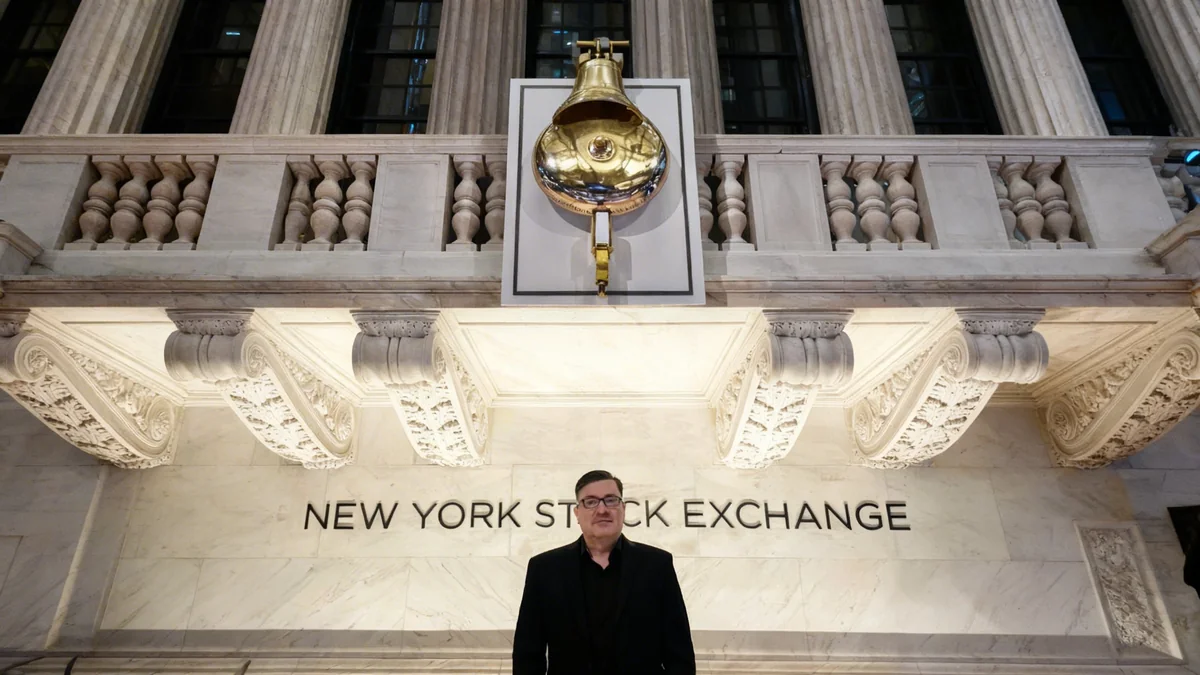World Property Ventures, a global property technology company, has announced plans to launch a digital investment bank dedicated to tokenized real estate. The new entity, named World Property Bank, aims to begin operations in 2026 as an SEC-regulated institution, bringing new standards and liquidity to the rapidly expanding market for digital property assets.
Key Takeaways
- World Property Ventures is launching a digital investment bank called World Property Bank, scheduled for 2026.
- The bank will be based in Miami and regulated by the U.S. Securities and Exchange Commission (SEC).
- It will feature three main divisions: a securities platform, a trading exchange, and a predictions marketplace.
- The initiative targets the tokenized real estate market, which is projected to grow to $3 trillion by 2030.
A Regulated Gateway for Digital Property Assets
A new financial institution is being developed to bridge traditional real estate with modern blockchain technology. World Property Ventures has confirmed it will launch the World Property Bank, a digital-first investment bank with a specialized focus on real estate assets represented as digital tokens.
The company is targeting a 2026 launch for the Miami-based bank. A key part of the plan is to operate under the regulation of the U.S. Securities and Exchange Commission (SEC). This move is intended to provide institutional-grade credibility and security for investors in the tokenized real estate sector.
The primary goal is to address common challenges in real estate investment, such as a lack of liquidity and high barriers to entry. By converting property ownership into tradable digital tokens, the bank aims to make real estate investing more accessible and efficient.
What Is Tokenized Real Estate?
Tokenization is the process of converting rights to an asset, like a commercial building or a portfolio of rental homes, into a digital token on a blockchain. This allows for fractional ownership, meaning investors can buy small pieces of a property instead of the entire asset. These tokens can then be traded on digital exchanges, similar to stocks.
Three Integrated Business Units
The World Property Bank will be structured around three distinct but interconnected business units. Each division is designed to serve a different function within the digital real estate ecosystem, from creating new investment products to facilitating their trade.
World Property Securities
This unit will be responsible for creating and originating new digital investment products. It will structure tokenized real estate in various forms, including debt, equity, credit, and derivatives. These products will be designed for both large institutional clients and individual retail investors, broadening the scope of who can participate in property markets.
World Property Exchange
Acting as the bank's own trading platform, the World Property Exchange will provide a venue for buying and selling real estate tokens. The company plans to use AI-driven matching engines to ensure transactions are fast, transparent, and liquid. This platform will operate globally, allowing for the issuance and trading of property tokens from around the world.
Real Estate Predictions
The third unit introduces a novel way to engage with the property market. Real Estate Predictions will be a decentralized marketplace for what are called “Event Contracts.” This will allow users to trade on the future outcomes of real-world real estate metrics. For example, investors could place trades based on their predictions for:
- Future home prices in a specific city
- Changes in national mortgage rates
- Levels of new housing construction (housing starts)
- Commercial property capitalization rates
This effectively makes broad market trends investable, separate from owning a direct piece of property.
A Vision for a New Property Economy
The leadership at World Property Ventures sees this initiative as more than just an update to existing systems. Michael Gerrity, the company's founder and chief executive, described the bank's ambitious goals.
"Our mission is to build the digital infrastructure that powers the capital and investment markets of tomorrow's AI-driven property economy," Gerrity stated. "This isn't an incremental evolution — it's a restructuring of the global real estate economy itself."
This statement highlights the project's aim to fundamentally change how real estate capital is raised, managed, and traded. The integration of AI and blockchain technology is central to this vision, promising a more data-driven and automated future for property investment.
Market Growth Projections
Industry analysts forecast significant growth in the tokenized asset space. The global tokenized real estate market was valued at approximately $120 billion in 2023 and is projected to reach $3 trillion by 2030. This represents a compound annual growth rate (CAGR) of nearly 50%.
Tapping into a Multi-Trillion Dollar Market
The launch of the World Property Bank is timed to capitalize on strong growth forecasts for tokenized assets. According to a report by Deloitte, the market for tokenized real estate debt alone could expand to $2.39 trillion by 2035. This figure includes tokenized loans and securitizations.
When combined with tokenized equity, the total market value for digital real estate assets could approach $6 trillion within the next decade. These projections underscore the immense potential that firms like World Property Ventures see in digitizing the world's largest asset class.
By establishing a regulated framework and sophisticated trading tools, the World Property Bank aims to be a key player in this transformation. Its success will depend on its ability to attract institutional capital, ensure regulatory compliance, and build trust among a wide range of investors.





